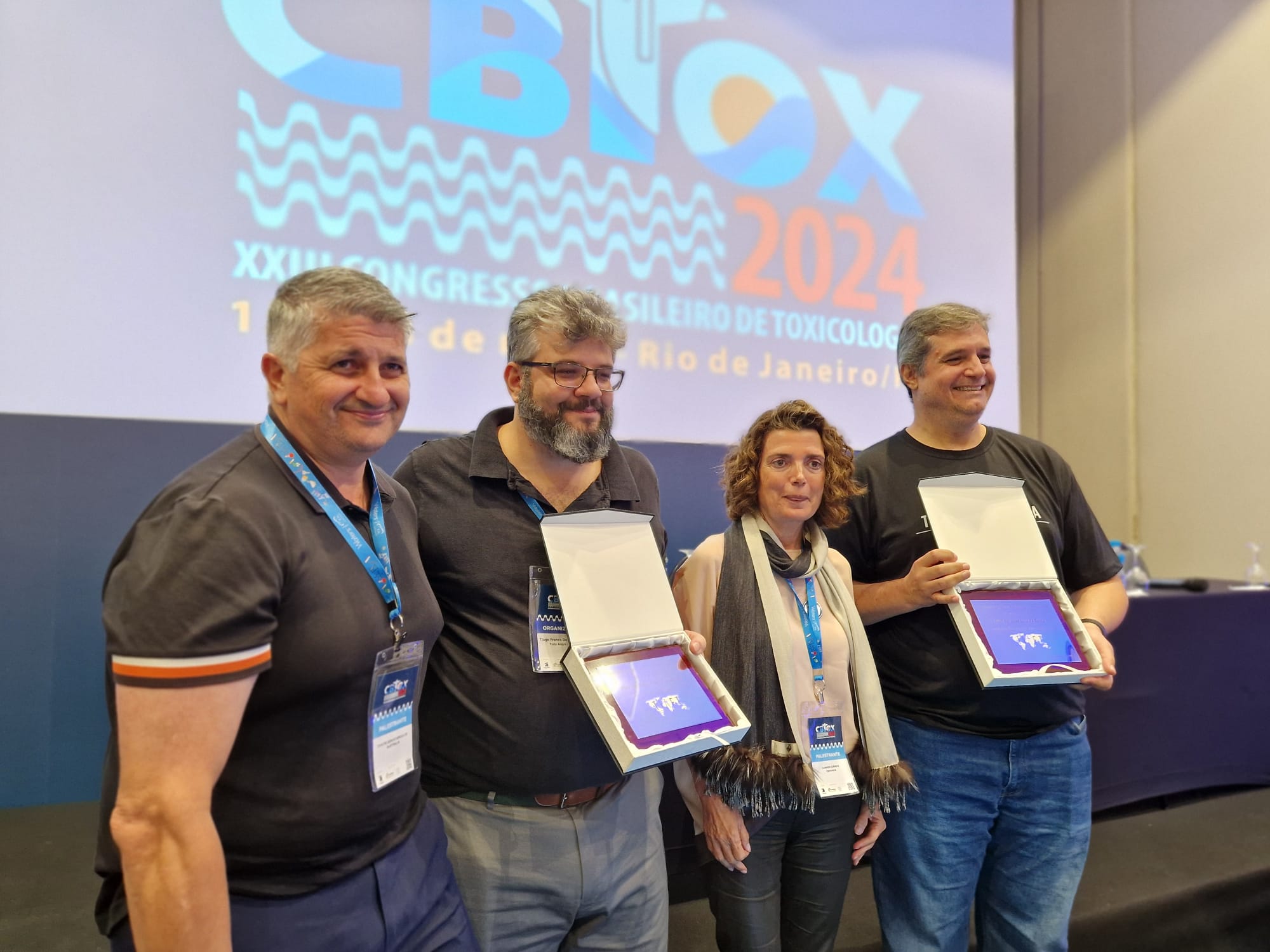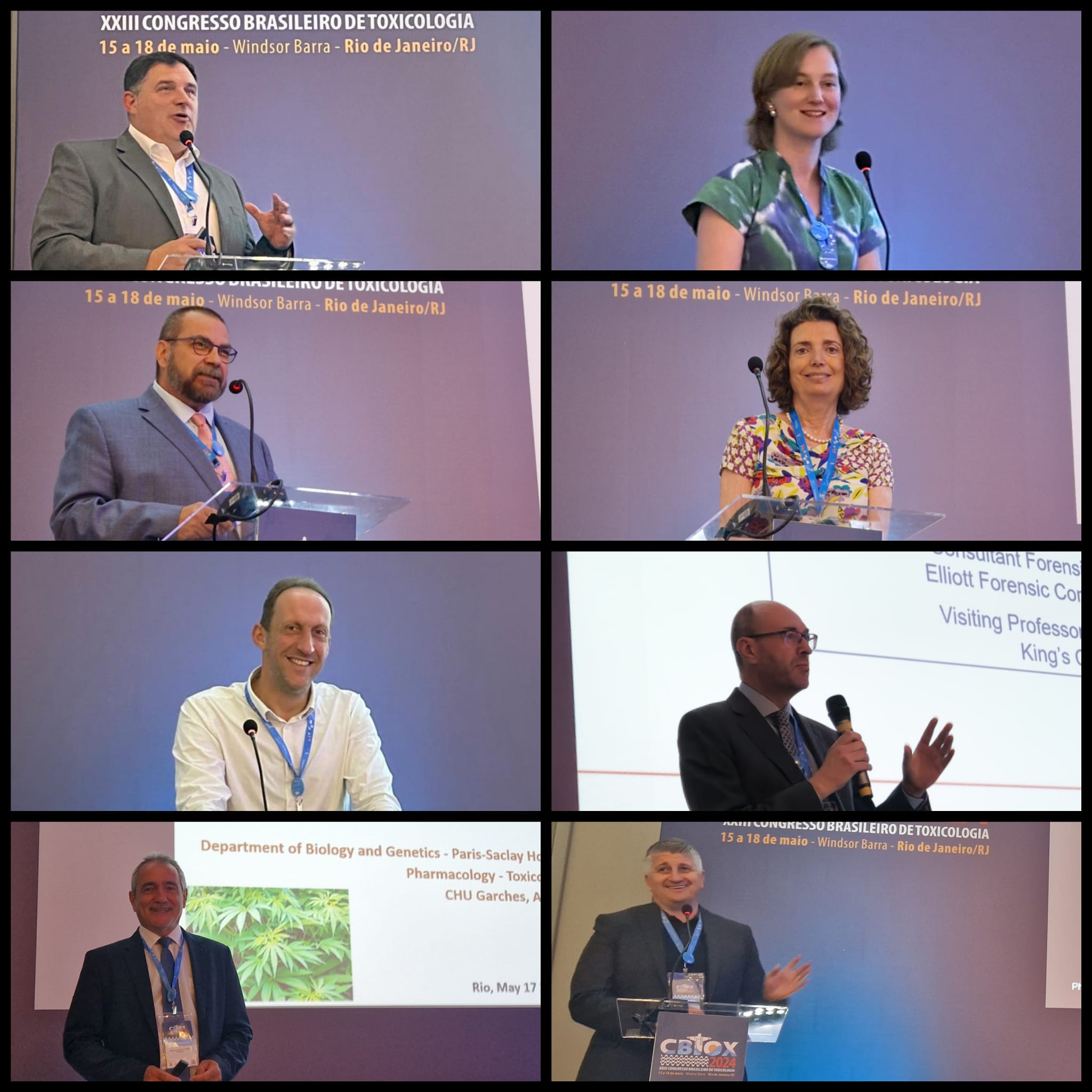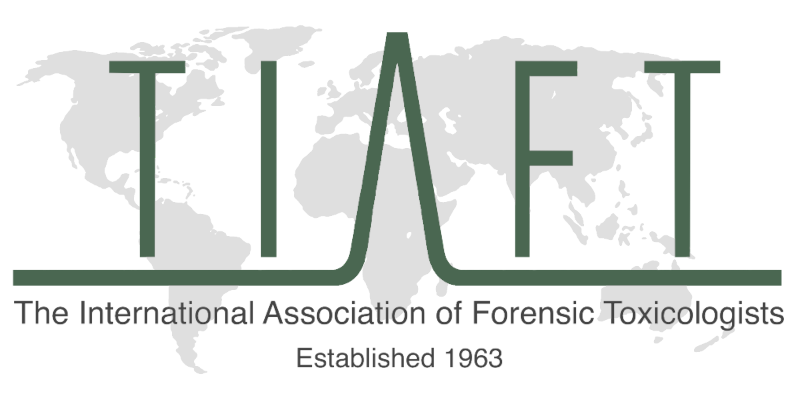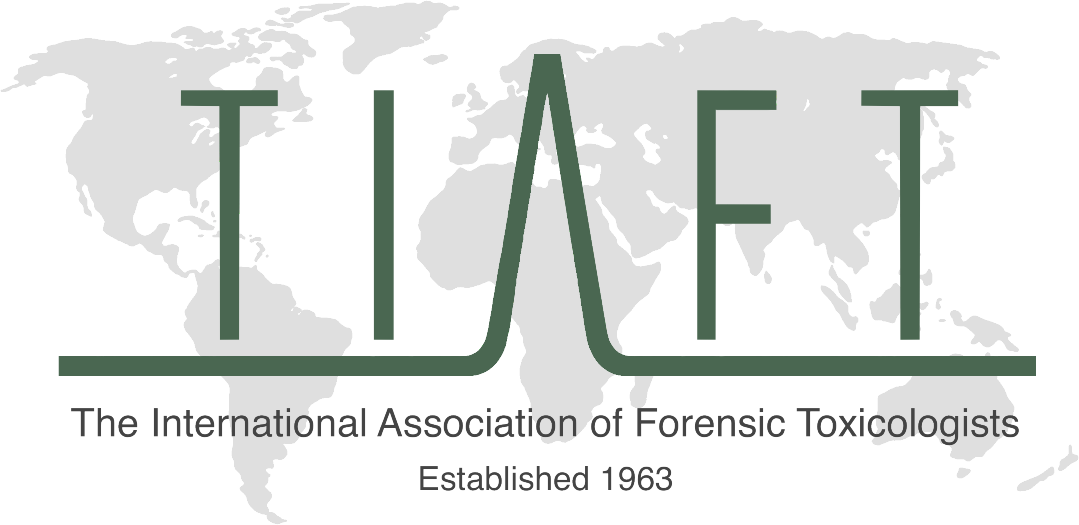Published on: 04-07-2024

Above: Dimitri Gerostamoulos, Tiago Oliviera, Carmen Jurado and Jose Luiz da Costa.
Dear TIAFT members,
It’s so encouraging to see firsthand how counties such as Brazil have made exceptional progress in forensic toxicology. The TIAFT board was recently in Rio de Janeiro for the 2024 Brazilian Toxicology Congress (CBTox) Meeting – which is held every two years. We were invited by colleagues Jose Luiz da Costa and Tiago Oliveira to participate in their program which was attended by some 400 people. As far back as 1981, the CBTox has continually organised bi-annual meetings, sustaining a broad range of toxicology disciplines (including environmental, clinical, and forensic). Not only local, but international speakers have participated over the years enabling opportunities to disseminate research, improve and increase networking and collaboration, and importantly for young scientists to establish contacts with specialists from various parts of the world. Jose-Luiz, Tiago, Rafael Lanaro and others are making such a difference to the landscape of forensic toxicology following in the great footsteps of Alice Chasin.

Above: TIAFT Board at CBTOX24.
Whilst in Brazil we had our mid-year board meeting which was packed full of agenda items for the association; ranging from membership management, secretarial, financial and TIAFT committee reports, document revisions, travel grant determinations and Bryan Finkle Visiting Scientist grant decisions and much more.
We revised the procedures for the upcoming elections (nominations have now closed for the board). We also sent out emails requesting nominations for this year’s Alan Curry and TIAFT Achievement awards. We discussed and reiterated the roles and responsibilities of our regional representatives (RR), and as the new board comes into effect after St. Gallen, all RR roles are reviewed as a required task for the next board. We also discussed our committees - who do an excellent work for the association. We will also be refreshing some of our committees with the election of the new board. If you wish to be part of a committee and be prepared to undertake tasks necessary, please write to the chair of the respective committee. The TIAFT board ultimately approves the makeup of each committee and the scope of work. All committees have handbooks which enable members to understand the nature of the work required.
About the nominations for the new TIAFT board which will be elected by the business meeting in St. Gallen, I am pleased to report that we had multiple nominations for almost every position. I will now be in contact with all the nominees regarding the next steps - this will include the preparation of a one-minute video on why each candidate will be seeking your vote for election to the TIAFT Board. As our members may recall we have changed the Constitution to improve the worldwide representation of the TIAFT board for the benefits of the entire association.
We have also had updates from our future meeting hosts (Jochen Beyer, Switzerland 2024 and Matthew Hosking New Zealand 2025). Of course, we have Chicago in 2026 and Kuşadası in 2027; however, the annual meeting slot for 2028 is still open and I encourage members who are thinking of submitting a proposal to finalise that before 30th July 2024.
On 30th May 2024 we held a free joint TIAFT/SOFT education webinar on Challenges in Postmortem Toxicology. This is another excellent set of lectures by notable speakers on various postmortem topics of interest. The full recording is available in the member's section.
The Annual TIAFT Meeting in St Gallen (September 2nd - 6th, 2024) is almost upon us. There are more than 100 orals and 300 posters! Jochen has assured us that all posters will be available the whole time we are at the conference. I personally prefer this as the time for reviewing posters is limited and having them available the whole week is ideal for those with a busy schedule. Presenters will be scheduled to be at their respective posters at specific times – notifications will be sent out in due course. Being allocated a poster is a positive outcome of abstract submission – delivering your scientific message in A1 format is challenging and can often take just as much time as preparing an oral presentation. It also allows people the time to engage with your research at a level that fosters discussion and potential collaboration. If you haven’t booked your accommodation, please do so – there will email updates for the annual meeting at regular intervals until early September.
I probably have one more message left in me as president as my term comes to an end. It’s hard to believe it has been almost three years, until next time…
Dimitri Gerostamoulos,
President
The International Association of Forensic Toxicologists
www.tiaft.org


